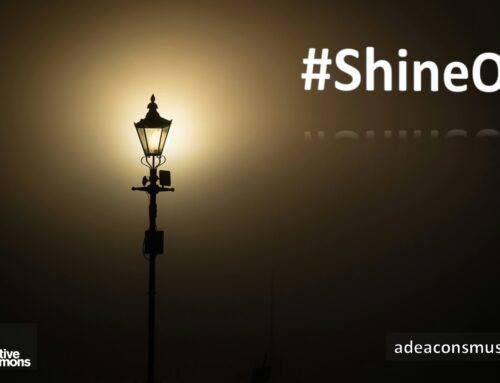Let's face it, digging deep and making space to explore our vulnerabilities is not encouraged in our day-to-day lives. Traditionally, media has a tendency to repeat and reinforce a lens that discourages us to ask questions about our selves or one others. Rather than inviting people to share, often the mantra of solace is found in the placebo of purchase this, wear that, replace those: anything to detract us from the soul's longing for awakening.
There are also three significant ways – or so it seems to me – that our individualised and atomised culture discourages the inner journey. Such persuasion, which encourages avoiding exploring and sharing our vulnerability, can be named as Shame, Suffering Strength and Fear.
Shame, I have found, is often a way to deflect that for which we long ourselves onto someone else. We are shamed into silence when we reach out to share, because it might create space to have difficult conversations that require compassion. Often in these places, we quickly realise that we are not talking just about the Other, but ourselves. If we are not prepared to go there, therefore, shame is a helpful way to keep all of us silent.
Suffering Strength, often euphemistically summarised as "suck it up," is another way to not address our own stuff and/or needs. This cultural mantra ensures that we not only stay individualised and separated from one another, but that the ideal way we should look and be is strong. Strong in pain, healthy looking and confident. Regardless of the inner soul weeping, the exterior is all that matters. Of course, consumerism helps with this, since if we have the latest this and hottest that, we must be projecting on our exterior what is occurring in our interior.
Fear is perhaps the most effective of the three. I do not mean to imply, as well, that these are separate phenomena. They dance and weave together, in order to create illusions that suppress our vulnerability. Whether fear is of the Other – Christian, Jew, Muslim, American, Russian, Black, White, Gay, or Straight – you choose the label, fear keeps us further removed. Then there is the interior fear, which sometimes invites shame along for the ride. Interior fear often is connected with rejection or dismissal. So, whether Shame, Suffering Strength or Fear, we find ourselves alone and longing …
As often is the case, when faith communities are at their best, vulnerability is revealed to be a paradox. When communities of faith endeavour to make safe space, people share voraciously and energetically. The reality is that it is not the hurt itself we want to share – solely – but the story of us that connects and sometimes does not arise from it. Yet in the intimate – Sacred – spaces of such story-telling in which Fear, Shame and Suffering Strength are banished, it is not weakness that is discovered, but awakening courage.
Regardless of the way we try to explain it, when places are nurtured to share that which is central to us, vulnerability and flaws, resilience and tenacity, the Holy abides. In these places, therefore, we are emboldened and fortified, awakening to the reality that community can change not just individual lives, but our churches, homes, cities, provinces, country and the world.
We are born tellers of tales, yet I would offer not to self-congratulate or ego feed, quite the contrary. When congregations have got it going on, if you will, we realise that our particular stories speak to a universal connexion or reality. This inter-connexion has many names, in the Christian context some might call it Spirit, Creator God, Wisdom or even Ruah. It is in these moments of inter-connected realisation that we recognise that which we do to ourselves, we do to one another. And in such awareness, rather than oppress into shadowed isolation, how might then we bid one another shine?








Your reflections are most welcome!